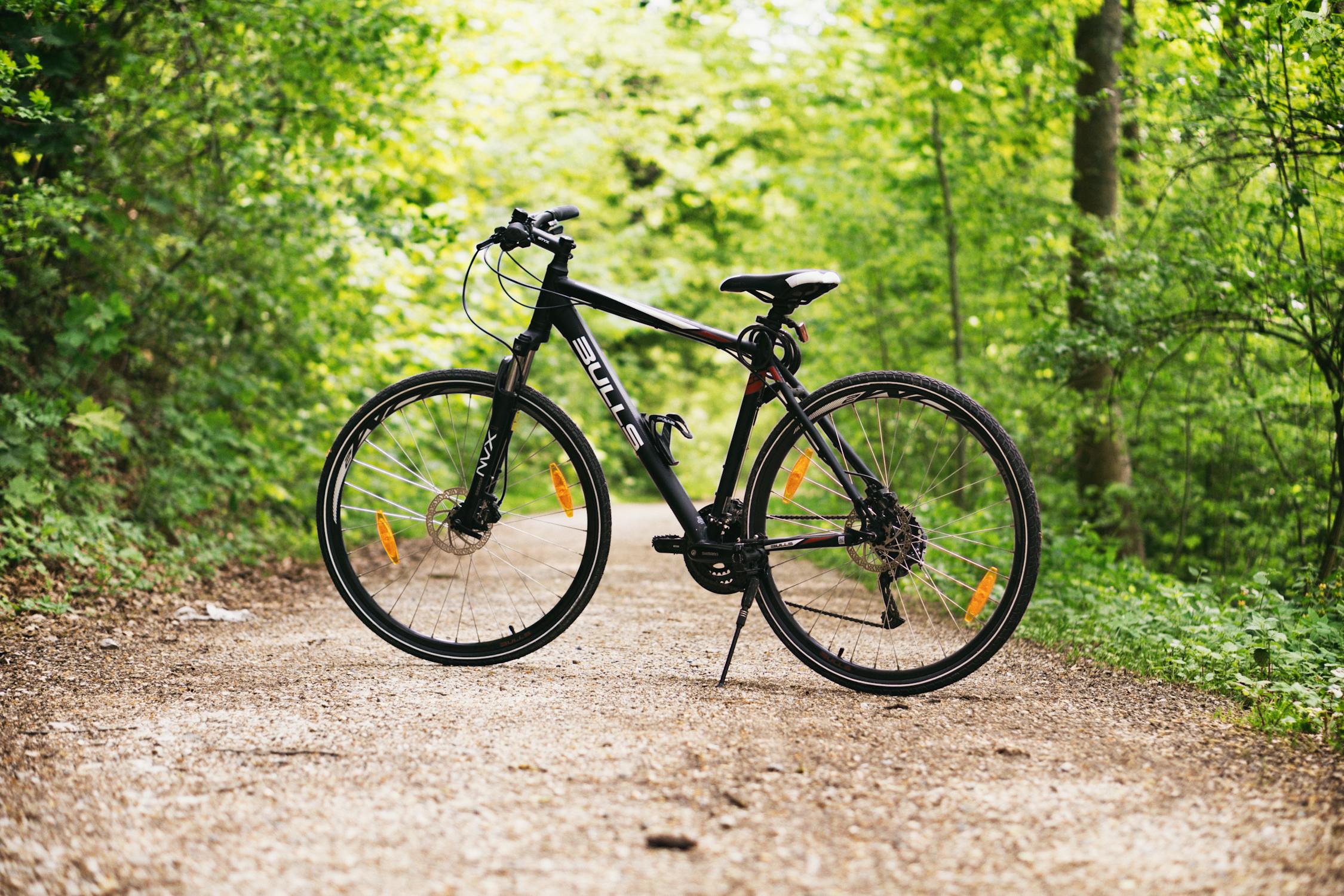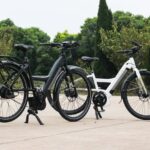Difference Between Hybrid Bikes and Electric Bikes: Which One Is Better?
In the world of cycling, hybrid bikes and electric bikes (e-bikes) are two of the most popular categories. Both types of bikes offer unique advantages for commuters, recreational riders, and fitness enthusiasts alike, but they cater to different needs and preferences. Understanding their differences is essential to making the right choice based on your riding habits and lifestyle. This article will explore the distinctions between hybrid bikes and electric bikes, and help you decide which one might be better for you.
Hybrid Bikes: The Versatile All-Rounder

Hybrid bikes are designed to combine the best features of road bikes and mountain bikes. They offer a blend of speed, comfort, and versatility, making them ideal for riders who want a bike that can handle a variety of terrains and riding conditions. Hybrid bikes typically have a lightweight frame and medium-width tires, which allow them to perform well on both paved roads and light off-road trails.
Key Features of Hybrid Bikes:
- Frame and Design: Hybrid bikes have a frame geometry that provides a more upright and comfortable riding position than road bikes. This is beneficial for long-distance rides or commuting, as it reduces strain on the back and wrists.
- Tires: The tires on hybrid bikes are wider than those on road bikes, typically ranging from 28mm to 42mm. This provides more traction and stability, especially on rougher surfaces or gravel roads.
- Gearing: Hybrid bikes are equipped with multiple gears, which allow the rider to easily shift to the appropriate level of resistance depending on terrain and riding conditions.
- Comfort: Hybrid bikes often come with features like padded saddles, front suspension forks, and ergonomic grips to enhance comfort during longer rides.
Hybrid bikes are a great choice for:
- Commuting in urban areas.
- Recreational cycling on both paved and unpaved paths.
- Fitness cycling without the need for high-end, specialized equipment.
- Riders who want versatility and the ability to explore different types of terrain without committing to a specific category of bike.
Advantages of Hybrid Bikes:
- Cost: Hybrid bikes are generally more affordable than e-bikes, as they don’t have the added expense of an electric motor or battery system.
- Simplicity: They don’t rely on a motor or battery, so there’s no need to worry about charging, maintenance of electronic components, or battery life.
- Physical Activity: Since hybrid bikes do not have a motor, riders get a full workout by pedaling the bike, making them a great option for those who want to stay active and improve their fitness.
- Lightweight: Without the added weight of an electric motor, hybrid bikes are generally lighter and easier to handle, especially when carrying them up stairs or loading them into a vehicle.
Electric Bikes: The Powered Alternative
Electric bikes, or e-bikes, are bicycles equipped with an electric motor that assists the rider with pedaling. This motor can help reduce the amount of physical effort required for cycling, making them an appealing option for those who want to cover longer distances or navigate challenging terrain with less exertion. E-bikes are available in different styles, including city bikes, mountain bikes, and even folding bikes, but they all share one common feature: the electric motor.
Key Features of Electric Bikes:
- Motor and Battery: The electric motor is powered by a rechargeable battery, typically located in the frame or rear wheel hub. The motor helps with pedaling, offering various levels of assistance depending on the bike’s settings. This allows the rider to adjust the amount of power they need based on their effort and terrain.
- Control System: E-bikes have a control system that allows the rider to adjust the level of pedal assist. Some e-bikes also have a throttle, which allows the rider to control the speed without pedaling.
- Speed: E-bikes can achieve speeds up to 28 mph (45 km/h), depending on the model and local regulations. This is much faster than a traditional hybrid bike and can make commuting or long-distance travel more efficient.
Electric bikes are ideal for:
- Commuters who want to travel longer distances with minimal physical effort.
- Riders who struggle with hills or rough terrain and want assistance without giving up cycling.
- People looking for an environmentally friendly alternative to cars for short trips or commutes.
- Cyclists who need to conserve energy during long rides or have mobility concerns.
Advantages of Electric Bikes:
- Assistance on Hills: The electric motor helps reduce the difficulty of climbing hills, making e-bikes ideal for areas with significant elevation changes.
- Less Physical Strain: E-bikes reduce the physical effort required to pedal, making cycling more accessible for older riders, people with joint issues, or those who want to conserve energy for longer trips.
- Speed and Efficiency: E-bikes are faster than hybrid bikes, allowing for quicker commutes or longer rides. The electric assist means less fatigue over time, making it easier to tackle long-distance cycling.
- Eco-Friendly Transportation: E-bikes are a more sustainable form of transportation, reducing the need for a car and lowering carbon emissions for short trips.
Which One is Better for You?
The decision between a hybrid bike and an electric bike ultimately depends on your personal needs and preferences.
- Choose a Hybrid Bike if:
- You enjoy physical exercise and want to get a workout while cycling.
- You don’t mind pedaling and want a more traditional cycling experience.
- You want a more affordable bike that is lightweight and simple to maintain.
- You plan to use the bike for short distances or leisurely rides.
- Choose an Electric Bike if:
- You need assistance on long commutes, especially if you live in a hilly area.
- You want to conserve energy and reduce physical strain, especially for longer distances or tough terrain.
- You prefer a faster, more efficient ride without getting overly fatigued.
- You’re looking for a more eco-friendly alternative to driving for daily transportation.
Conclusion
Both hybrid bikes and electric bikes have their own set of advantages, depending on your cycling goals and lifestyle. Hybrid bikes are a great option for riders who want versatility, affordability, and a more physically engaging cycling experience. Electric bikes, on the other hand, provide an assisted, eco-friendly ride for those seeking less physical exertion or faster travel times. Ultimately, the choice depends on your priorities: whether you value exercise and simplicity or convenience and assistance.










